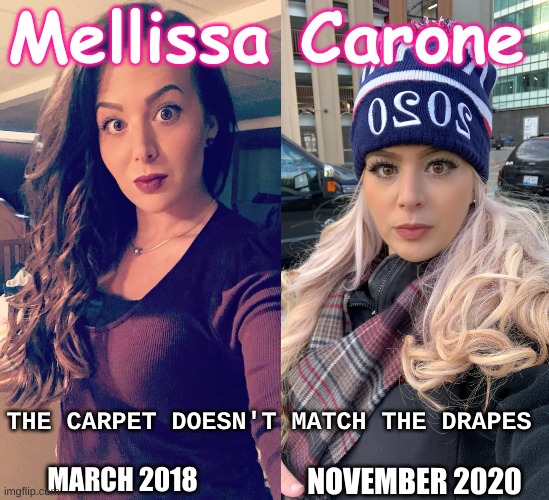Here you go.
~~~
The answer is almost certainly yes. The U.S. Constitution grants the president the power “to grant reprieves and pardons for offenses against the United States”—with few limits on that power found either in the text of the Constitution or in subsequent court decisions.
The provision has been interpreted to allow presidents to grant pardons, which expunge charges completely, or commutations, which lessen a sentence. The president can also reduce or cancel fines.
In 1866, the U.S. Supreme Court held that the power to grant pardons “is unlimited except in cases of impeachment.” It added: “It extends to every offense known to the law, and may be exercised at any time after its commission, either before legal proceedings are taken or during their pendency, or after conviction and judgment.”
Pardons can’t be revoked or reversed by a president’s successor.
There is even recent precedent for a president offering pardons to his family and close associates. As Bill Clinton left office in 2000, he pardoned his half-brother Roger Clinton, as well as a longtime friend and associate, Susan McDougal, who had served jail time for refusing to testify as part of an investigation into Mr. Clinton.
Can the president pardon himself?
In a brief 1974 legal memorandum written days before Richard Nixon resigned over his role in the Watergate scandal, the Justice Department said that a president can’t give a pardon to himself under the age-old legal principle that “no one may be a judge in his own case.”
No president has ever tried to pardon himself, and some legal scholars disagree with the 1974 Justice Department opinion.
“The answer is crystal clear: No one knows, and we will probably never obtain a definitive answer,” Harvard Prof. Alan Dershowitz wrote in a 2018 op-ed. Others, like former federal prosecutor Andy McCarthy, argue that the president is allowed to self-pardon.
Mr. Trump appears to believe he can grant himself clemency. In June 2018 he wrote on Twitter: “As has been stated by numerous legal scholars, I have the absolute right to PARDON myself, but why would I do that when I have done nothing wrong?”
Despite the 1974 Justice Department opinion, Mr. Trump could try to write himself a pardon before he leaves office. The issue would only ever reach a judge if a future Justice Department decided to try to indict him, which would then force a court to weigh in on the issue.
Must a pardon be for specific crimes? Can the president write a blanket pardon even if a person isn’t currently under investigation?
“Pardons are usually for specific things,” said Jonathan Adler, a law professor at Case Western Reserve University. “There are reasons to doubt that a pardon can simply say ‘any and all violations of federal law that have ever been committed.’”
But the exact boundaries of how expansive a pardon can be are untested—and many presidents have granted broad amnesty or other clemencies to groups of people.
Gerald Ford’s pardon of Mr. Nixon was quite broad—pardoning the ex-president for “all offenses against the United States” during the period of his presidency.
Other pardons involved large numbers of people. Jimmy Carter issued blanket pardons to those who evaded the military draft during the Vietnam War. George Washington and John Adams issued amnesty to those who participated in rebellions against federal tax collectors and James Madison pardoned a large number of pirates operating in Louisiana, while Abraham Lincoln and Andrew Johnson granted extensive amnesty to former Confederates after the Civil War.
Mr. Trump’s pardon of Mr. Flynn freed him from any crimes within the jurisdiction of the special counsel’s investigation.
A president can issue pardons before any charges are brought. Most legal scholars agree that a president cannot issue pardon for crimes not yet committed, but could promise a future pardon to an associate planning to commit a crime.
The framers of the Constitution worried about such a possibility when drafting the power, but believed it could be checked through impeachment.
“What people feared it would be used for is that the president would send forth his minions to do dastardly things with the promise that once the acts were committed, they would be pardoned,” said Mr. Adler. “Fortunately, in our history, we have not seen that.”
Are there any checks on the pardon power?
The Supreme Court has held that the pardon power is beyond the control of Congress, meaning that absent a constitutional amendment there is little the legislature could do to check the power.
Any corruption in exchange for a pardon could potentially be investigated and charged as a separate crime in some circumstances, though that would likely not nullify the pardon itself.
The Justice Department did open an investigation into the circumstances around Mr. Clinton’s pardon of fugitive financier Marc Rich, but closed the investigation several years later without any charges. The late Mr. Rich’s wife had been a substantial donor to Democratic causes, including being a major benefactor to Mr. Clinton’s presidential library.
Does the presidential pardon power apply to state offenses?
No. A president can only issue pardons for federal crimes. Presidential clemency couldn’t stop state officials from investigating potential state law violations by Mr. Trump, his associates or his family members.
New York state prosecutors are fighting for access to Mr. Trump’s tax returns as part of a wide-ranging criminal investigation being conducted by Manhattan District Attorney Cyrus Vance Jr. into possible insurance or bank fraud. In addition, the New York attorney general is conducting a separate civil investigation.
The president has no ability to curtail or bring to an end those investigations using his pardon power.
Write to Byron Tau at
byron.tau@wsj.com


